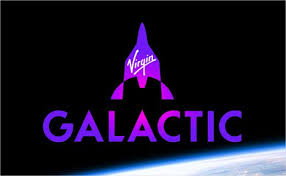
Top 10 Space Exploration Industry Trends And Innovations in 2025: Key Statistics, Growth Projections, and Insights
RELEASE DATE: Sep 2024 Author: Spherical InsightsRequest Free Sample Speak to Analyst
What Is SpaceTech?
The application of engineering principles to the creation, development, production, and use of tools and systems for space exploration and travel is known as space technology or space tech. Space technology can be used to research the universe, discover new planets, and support human activity by offering communication and navigational capabilities. It includes everything from equipment and satellites to the human side of space travel, including biology, chemistry, physics, and astronautics. The field of space technology encompasses several aspects such as research and development, new technology applications, and technology enhancement for pre-existing space systems.
Key Market Insights:
The global SpaceTech market size was valued at USD 432.03 billion in 2023 and is projected to USD 910.11 billion by 2033, exhibiting a CAGR of 7.74% during the forecast period 2023-2033. Several prominent companies within the global SpaceTech industry are SpaceX, Boeing, Orbital Sciences, Sierra Nevada Corporation, Virgin Galactic, XCOR Aerospace, Made in Space, Blue Origin, Lockheed Martin, and Northrop Grumman.
Space Tech Applications
1. Space Robotics
Numerous space robots are launched into orbit to carry out various missions. These jobs involve science, building, maintenance, and search and rescue. Because they can do repetitive jobs that are hard for people to do, robots are used widely nowadays.
2. Space Tourism
People are traveling to space for a few days or months as part of a new type of tourism. People are becoming more interested in space exploration, which is why this is a current trend. Given the high cost of space travel and the rarity of the event, it is mostly a luxury enjoyed by the wealthy. Businesses such as SpaceX and Virgin Galactic are planning to provide this type of space travel.
3. Space Engineering
The science of planning, constructing, running, and maintaining space systems is known as space engineering. It covers both the creation of space systems and their upkeep and operation. Numerous space systems, like the Hubble Space Telescope and Chandra X-Ray Observatory, have been developed with the use of space technology.
4. Spacecraft Propulsion
The method of propelling a spacecraft across space is known as spacecraft propulsion. They can use any kind of fuel for it. For instance, chemical processes are used in spaceship propulsion to release energy and propel the craft forward. It may also involve nuclear reactors that use nuclear fusion to power spaceships. Rocket engines have been used to help launch spacecraft from Earth into orbit.
Market Dynamics for SpaceTech Industry
1. Growth in the market is driven by rising demand for satellite-based services.
The increased need for satellite services including broadcasting, telecommunications, navigation, and remote sensing is driving paceTech's growth. In places with little terrestrial infrastructure, satellites are essential for providing international telecommunications. Services including phone calls, internet access, video conferencing, and broadcasting are offered by companies like Inmarsat and Iridium. Moreover, these satellites have sophisticated sensors that enable them to capture detailed images of the Earth's surface and atmosphere. After then, these photos are examined to monitor the surroundings, forecast the weather, and respond to crises.
2. Removing Orbital Debris
Space gets clogged up with junk from all the satellites and space missions that are launched regularly and many of them never return. This has sparked worried discussions about the sustainability of space travel. 25,182 space debris, comprising spaceships and utilized rocket bodies, were listed by NASA in their Orbital Debris Quarterly News earlier in March.
Trends and Opportunities in SpaceTech Industry
1. Commercialization of Space and Private Space Companies
More and more private businesses are probably going to enter the space sector as the expense of launching rockets and satellites keeps going down. With businesses including SpaceX, Virgin Galactic, and Blue Origin making major advancements in the industries of space tourism and recyclable rocket development, this trend is already well under way. There will soon be enough space for everyone because of the introduction of new satellites that are less expensive to launch and have a wide range of uses, such as communication (like Starlink), earth observation, and scientific study.
2. Growing Geographical Surveillance and Earth-Related Cases
The advancements in space technology have drawn a lot of attention in light of the heated debates around climate change and reaching the Sustainable Development Goals (SDGs) and how they may contribute to Earth's sustainability. Undoubtedly, one of the factors is space sustainability, but as the need for renewable energy increases, space-based solar power plants are emerging and have the potential to become a major source of clean energy for the planet.
Government Initiatives
- The UK Space Agency is providing a £1.8 million grant to support British companies with innovative space technology, with a focus on climate and sustainability use cases. To support the implementation of new space capabilities, British organizations with promising technologies were given a boost by the ETP, which was launched in September 2022 in collaboration with the UKRI Science and Technology Facilities Council. The £8.6 million initiative, which has now been integrated into the larger National Space Innovation Programme (NSIP), has already assisted 41 developing space-based technologies that are expected to propel expansion in the UK space industry.
List of Key Companies in the SpaceTech Industry
- SpaceX
- Boeing Defense, Space, and Security
- Orbital Sciences
- Sierra Nevada Corporation
- Virgin Galactic
- XCOR Aerospace
- Made in Space
- Blue Origin
- Lockheed Martin
- Northrop Grumman
Top 5 Players in the E-bike Industry
1. SpaceX

Headquarters: California, United States
SpaceX, also known as Space Exploration Technologies Corporation, is a US-based satellite communications, launch services, and spacecraft maker with its main office at the SpaceX Starbase close to Brownsville, Texas. Elon Musk started the business in 2002 with the intention of bringing down the price of space travel and eventually creating a self-sustaining Mars colony. Together with the Dragon spacecraft, the firm now builds and manages the Falcon 9 and Falcon Heavy rockets. The business provides internet access through its Starlink subsidiary, which as of April 2024 had over 6,000 tiny satellites in orbit and had grown to become the largest-ever satellite constellation in January 2020.
2. Boeing Defense, Space, and Security

Headquarters: Virginia, United States
A subsidiary of The Boeing Company, Boeing Defense, Space & Security (BDS) is situated in Arlington, Virginia, close to Washington, D.C. The division manufactures space systems, such as satellites, spacecraft, and rockets, for both commercial and military clients in addition to military aircraft, helicopters, and missiles. Airbus and Boeing compete in the commercial aircraft market, with Boeing producing aircraft that have a maximum passenger capacity of 130. When it comes to building military planes, satellites, and armaments, Boeing's defense, space, and security division faces competition from Lockheed, Northrop, and several other companies. Airlines receive aftermarket support from Global Services.
3. Virgin Galactic.

Headquarters: California, United States
Virgin Galactic is a space and aeronautical travel enterprise owned by Virgin Galactic Holdings Inc. The business is in charge of creating, developing, producing, and managing reusable spaceflight systems. provides government agencies, private citizens, and researchers with access to space. It also occasionally handles engineering services for outside clients. Their exclusive technology and procedures were used in the development of the Virgin Galactic spaceflight system. Additionally, it provides programs that are motivational and helpful to those who are seeking degrees in science, technology, engineering, the arts, and mathematics. The business has offices in both the US and the UK. New Mexico's Las Cruces is home to Virgin Galactic's US headquarters.
4. Blue Origin Enterprises

Headquarters: Washington, United States
The American aerospace manufacturer, government contractor, launch service provider, and space technologies firm, Blue Origin Enterprises, L.P., also known as Blue Origin has its headquarters located in Kent, Washington. Blue Origin is an aerospace and spaceflight services company that focuses on bringing down the cost of space access. To support space exploration and development, it designs and produces reusable rocket engines, launch vehicles, in-space systems, and lunar landers. Government and private organizations involved in satellite deployment and space exploration comprise its main market.
5. Orbital Sciences Corporation

Headquarters: Virginia, United States
The American business Orbital Sciences Corporation, also known as Orbital, was focused on designing, producing, and launching small- and medium-sized space and launch vehicle systems for use by the military, the private sector, and other governmental clients. The corporation specializes in the design, production, and launch of rocket and small- and medium-class space and equipment for government, military, and commercial clients. Ground- and air-launched rockets that carried satellites into orbit, missile defense systems that served as interceptors and target vehicles, and human-rated space systems for Earth-orbit, lunar, and other missions were among its main products. In addition, Orbital offers government organizations and research facilities satellite subsystems and space-related technical services.
Recent Development
- In August 2024, the space tech business Muon Space, based in California, has closed a $56.7 million Series B financing round. In addition to Acme Capital and previous investors Costanoa Ventures, Radical Ventures, and Congruent Ventures, the round was led by Activate Capital.
- In August 2024, Lockheed Martin declared that it has finalized an agreement to buy Terran Orbital, a leader in the world of satellite-based technologies that mainly serve the defense and aerospace sectors.
- In April 2024, Vast revealed that its Haven-1 space station, which is slated to launch shortly, will be outfitted with SpaceX's Starlink laser terminal, which will provide gigabit-speed, low-latency connectivity for its crew members, as well as internal payload racks, external cameras, and instrumentation.
- In April 2023, Northrop Grumman Corporation (NYSE: NOC) finished a critical design review for its Tranche 1 Transport Layer (T1TL), which is a component of the Space Development Agency's (SDA) low-Earth orbit network. This network is intended to swiftly and securely transmit critical information to any location to support U.S. troops on the ground.
- In April 2023, Boeing and the Korean industry have extended their collaborative research and development efforts to advance vital aviation technologies.
About the Spherical Insights & Consulting
Spherical Insights & Consulting is a market research and consulting firm which provides actionable market research study, quantitative forecasting and trends analysis provides forward-looking insight especially designed for decision makers and aids ROI.
Which is catering to different industry such as financial sectors, industrial sectors, government organizations, universities, non-profits and corporations. The company's mission is to work with businesses to achieve business objectives and maintain strategic improvements.
CONTACT US:
For More Information on Your Target Market, Please Contact Us Below:
Phone: +1 303 800 4326 (the U.S.)
Phone: +91 90289 24100 (APAC)
Email: inquiry@sphericalinsights.com, sales@sphericalinsights.com
Contact Us: https://www.sphericalinsights.com/contact-us
Need help to buy this report?